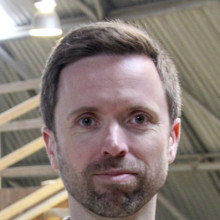
Robohub.org
Field and service robotics: The rubber meets the road at FSR in Toronto this June

While there has been a lot of recent attention in the media surrounding self-driving cars and drones, the field and service robotics community has been quietly toiling away for much longer. Later this month, the world’s top experts on field and service robotics will meet to discuss their latest accomplishments at the bi-annual Field and Service Robotics (FSR) conference. These researchers are applying robots to real-world problems such as monitoring of lakes and oceans, autonomous wheelchairs, automated mining, space exploration, and yes, self-driving cars and drones, too. The first FSR was held in Canberra, Australia, in 1997, and it remains the only focussed meeting (single-track) on field and service applications of robots.
This year’s FSR (the 10th edition) will be held in Toronto, Canada, from June 23rd to 26th and the lineup could not be more exciting. There will be 42 papers presented on a wide variety of applications and the keynote speakers are second-to-none: Dr. Chris Urmson (Google[x]), Prof. Paul Newman (Oxford), Prof. Sanjiv Singh (Carnegie Mellon), and Ryan Gariepy (Clearpath Robotics). The full list of talks and abstracts can be found on the FSR webpage.
Science fiction often asks us to imagine what a world full of robots might look like. Well, look no further. The field and service robotics community is approaching this vision at breakneck speed. If you’re interested in previewing your future with robots, register and join us in Toronto for FSR 2015. The robots are coming …
tags: c-Events, Canada, field and service robotics, FSR





